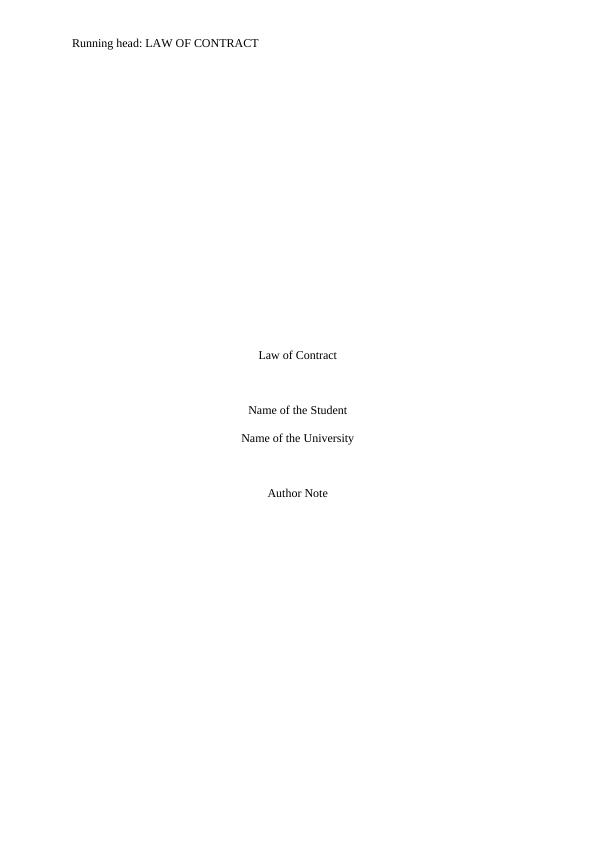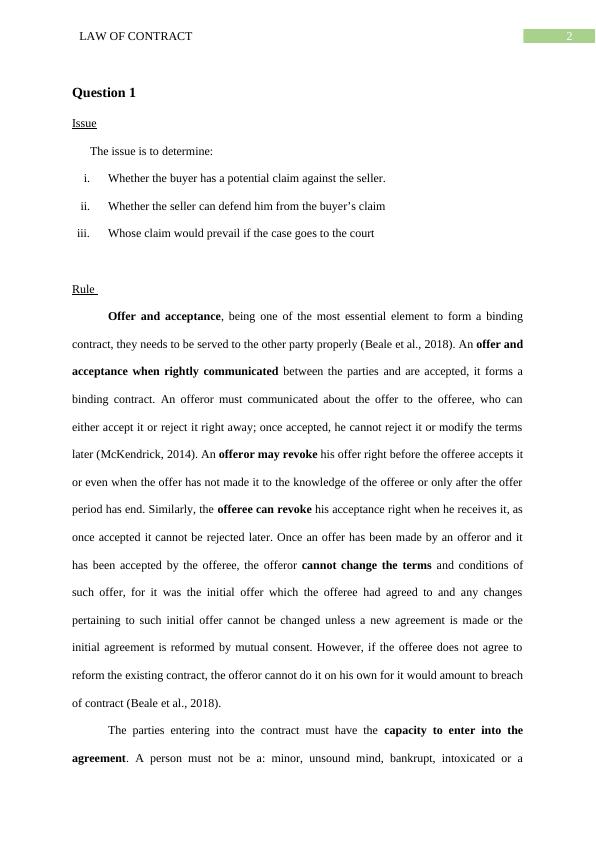Law of Contract
7 Pages1327 Words97 Views
Added on 2023-03-23
About This Document
This document discusses the principles of the law of contract, including offer and acceptance, capacity to enter into a contract, and remedies for breach of contract. It explores two specific scenarios and provides analysis and conclusions based on the relevant legal principles.
Law of Contract
Added on 2023-03-23
ShareRelated Documents
End of preview
Want to access all the pages? Upload your documents or become a member.
Business Law: Contract Law, Remedies, Chattel Mortgage, Fixture, Torrens, Leasehold
|9
|1714
|333
Business Law
|7
|1239
|52
Determining Breach of Contract and Liability in Business Law
|5
|754
|215
Business Law
|10
|2331
|240
Contract Law
|7
|1858
|78
International Trade Law Case Study Analysis
|5
|882
|272



